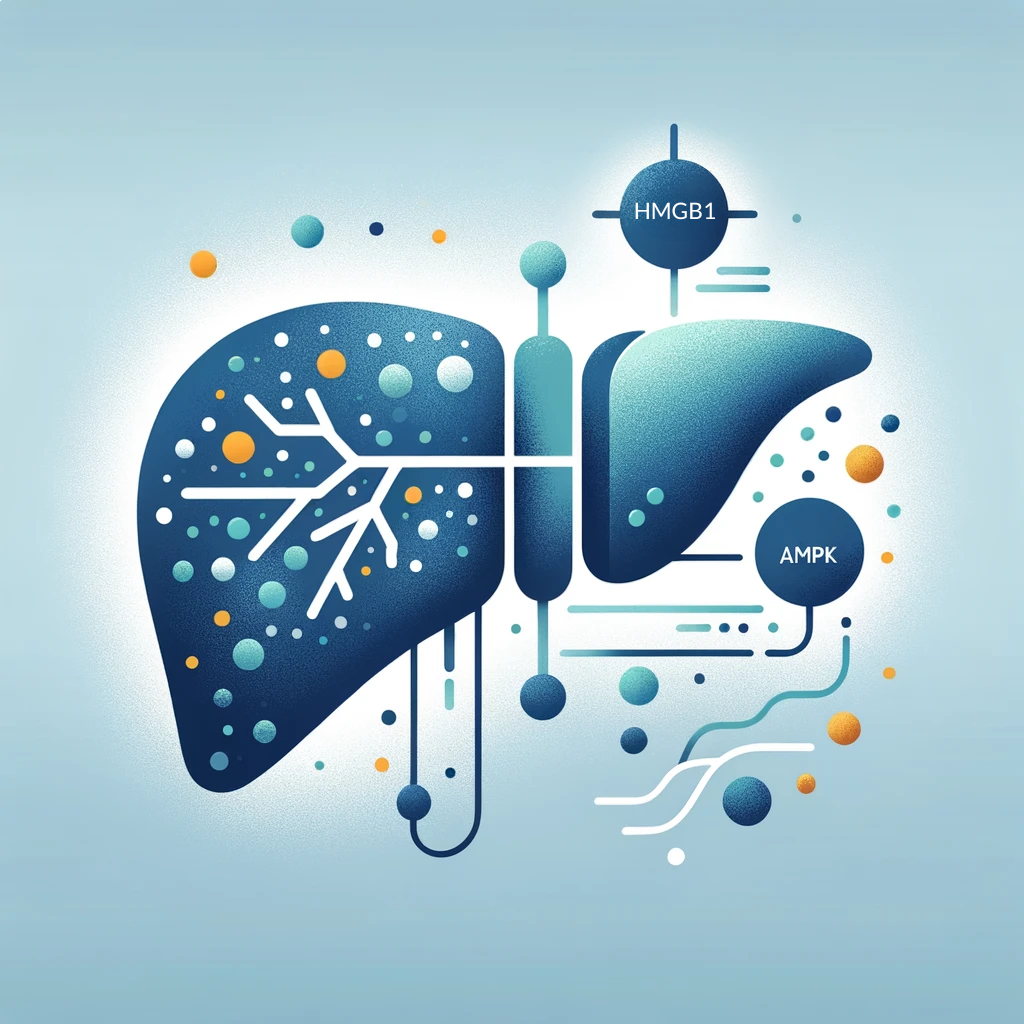The recent World Cancer Day 2024, themed “Close the Care Gap,” has highlighted the need to increase knowledges about cancer and to improve the resources dedicated to cancer research.
Recent findings illuminate a crucial pathway from fatty liver disease to hepatocellular carcinoma (HCC), where High Mobility Group Box 1 (HMGB1) emerges as a crucial player in the progression of liver diseases.
Researchers underscore the critical role of the AMP-activated protein kinase (AMPK) signaling pathway, involving HMGB1, in mediating the transition from a fatty liver condition to liver cancer, highlighting the intertwined nature of energy balance, inflammation, and cellular aging.
HMGB1 protein deeply involved in inflammation, cellular stress responses, and DNA repair, has been identified as a significant marker within the tumor microenvironment, affecting various aspects of tumor progression including inflammation, hypoxia, and cellular senescence.
This study explores how disruptions in the AMPK signaling pathway, notably influenced by HMGB1 expression, contribute to the escalation of fatty liver disease into HCC.
The role of HMGB1 in this context is multifaceted, acting not only as a marker of cellular stress but also as a facilitator of chronic inflammation and a contributor to the disruption of normal cellular functions, which are critical in the development of fatty liver disease and its progression to HCC. The upregulation of HMGB1, alongside alterations in the AMPK pathway, underscores the potential of targeting HMGB1 as a therapeutic strategy to mitigate the transition from fatty liver disease to liver cancer.
HMGBiotech Srl can provide comprehensive information to facilitate informed decision-making for research involving HMGB1.
Discover more about HMGB1 protein and contact us for your pre-sales questions.
Read the full article about the study: https://www.frontiersin.org/journals/oncology/articles/10.3389/fonc.2023.1099624/full

